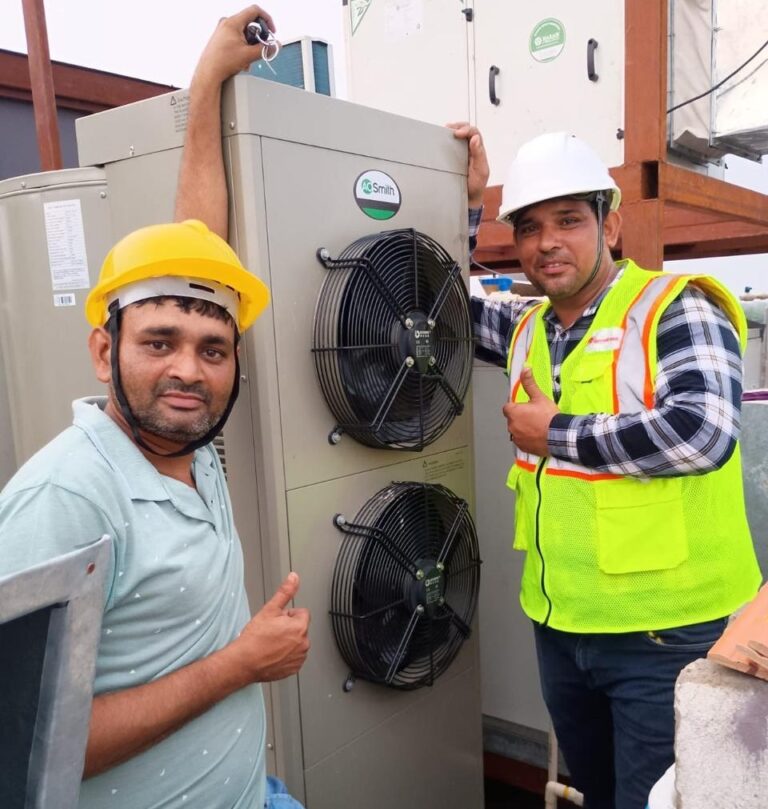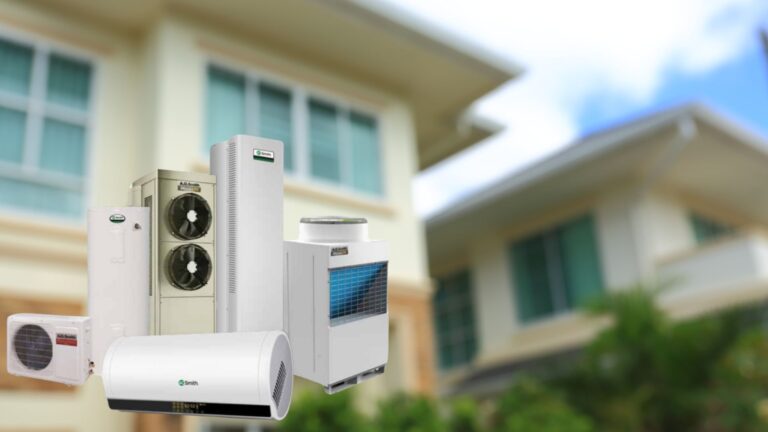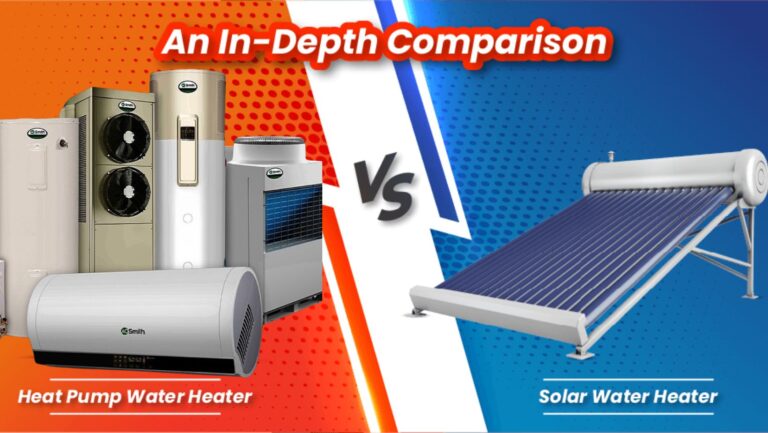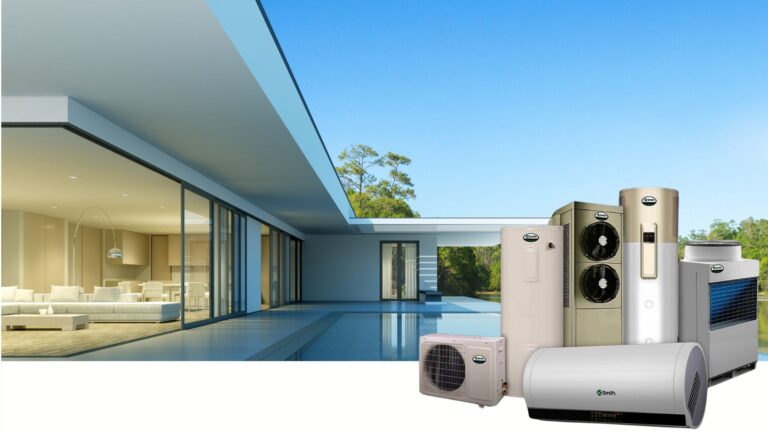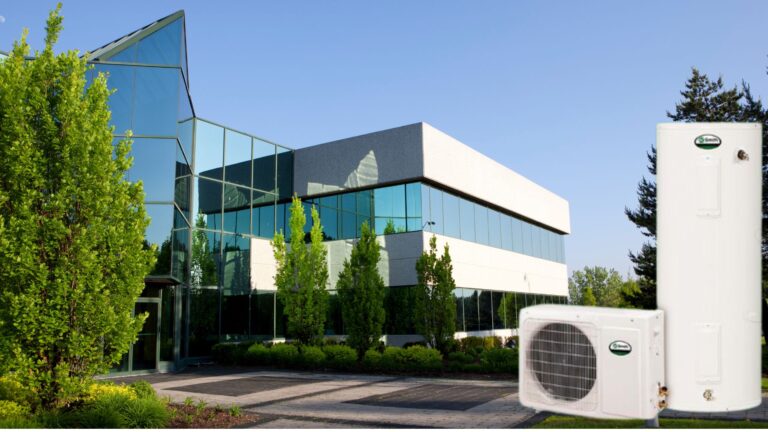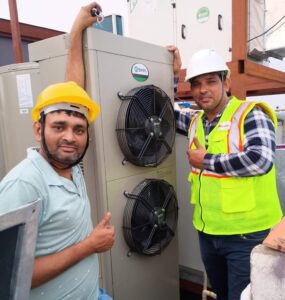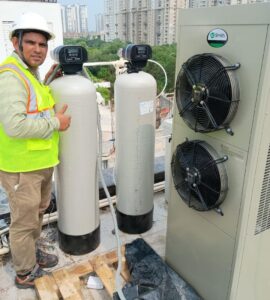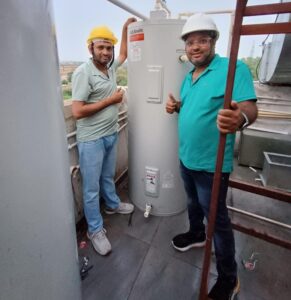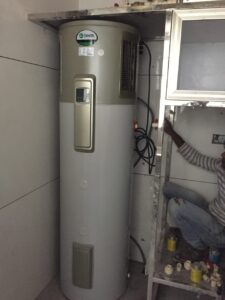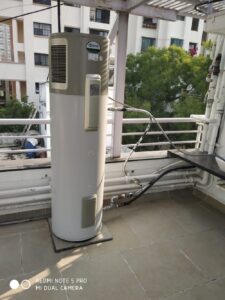If you’re planning to upgrade your water heating system, you’re likely comparing the heat pump water heater vs electric geyser. While both serve the same purpose—providing hot water for your home or business—their efficiency, technology, and long-term cost vary significantly.
In this guide, we break down the key differences between a heat pump water heater and a traditional electric geyser, helping you make an informed, energy-smart decision.
🔗 Learn more about Heat Pump Water Heaters →
1. Technology & Working Principle
Electric Geyser:
An electric geyser uses a resistive heating element to heat water. Electricity directly heats the water in the tank, similar to how an electric kettle works. It’s quick but not energy efficient.
Heat Pump Water Heater:
A heat pump water heater, on the other hand, uses electricity to transfer heat from the surrounding air to the water. It works like an air conditioner in reverse and consumes much less electricity.
✅ Winner: Heat Pump Water Heater – Advanced and energy-efficient technology
2. Energy Efficiency
- Electric Geysers convert electricity into heat with around 90% efficiency.
- Heat pump water heaters offer efficiency levels of 200–300%, meaning they produce 2 to 3 units of heat for every unit of electricity consumed.
This leads to up to 70% lower energy consumption, which is a huge advantage in the long term.
✅ Winner: Heat Pump Water Heater – Significantly lower power usage
3. Monthly Electricity Bills
With rising electricity prices, operational costs are a key consideration:
- Electric geysers contribute heavily to monthly energy bills.
- Heat pump water heaters, although having a higher upfront cost, reduce monthly power bills drastically over time.
Example:
For a household using 100 liters of hot water per day:
- Electric geyser: ₹1000–₹1500/month
- Heat pump: ₹300–₹500/month
✅ Winner: Heat Pump – Bigger savings month after month
4. Upfront Cost
- Electric geyser: ₹3,000–₹10,000 (depending on brand and size)
- Heat pump water heater: ₹35,000–₹1,00,000+
While the initial investment for a heat pump water heater is higher, it’s offset within a few years through energy savings and lower maintenance costs.
✅ Winner: Electric Geyser – Lower initial cost, but costlier over time
5. Lifespan & Maintenance
- Electric geysers last around 5–7 years and require periodic element or thermostat replacement.
- Heat pump water heaters generally last 10–15 years with minimal maintenance due to robust technology.
✅ Winner: Heat Pump Water Heater – Longer life and better durability
6. Environmental Impact
Electric geysers rely entirely on electricity from the grid, often generated by fossil fuels. Heat pump water heaters, due to their low power usage, have a significantly lower carbon footprint.
✅ Winner: Heat Pump – Eco-friendly water heating solution
7. Use Case & Suitability
| Use Case | Electric Geyser | Heat Pump Water Heater |
|---|---|---|
| Small Apartments | ✅ Suitable | ✅ Suitable |
| Villas & Bungalows | ❌ Limited efficiency | ✅ Ideal |
| Hotels/Hostels | ❌ High running costs | ✅ Commercial models available |
| Green Buildings | ❌ Not energy compliant | ✅ Energy-efficient certified |
Comparison Summary Table
| Feature | Heat Pump Water Heater | Electric Geyser |
|---|---|---|
| Energy Efficiency | ★★★★★ | ★★ |
| Monthly Cost | Low | High |
| Upfront Cost | High | Low |
| Lifespan | Long (10–15 years) | Moderate (5–7 years) |
| Maintenance | Low | Medium |
| Environmental Impact | Low (Eco-Friendly) | High |
| Best For | Homes & Businesses | Basic Residential Use |
Final Verdict: Which Should You Choose?
If you’re looking for a budget-friendly, short-term solution and have low hot water usage, an electric geyser may suffice. But if your priorities are long-term energy savings, sustainability, and advanced technology, a heat pump water heater is undoubtedly the smarter investment.
At Winnovent Solutions, we offer a wide range of A.O. Smith heat pump water heaters tailored for every type of user—from residential homes to commercial facilities.


